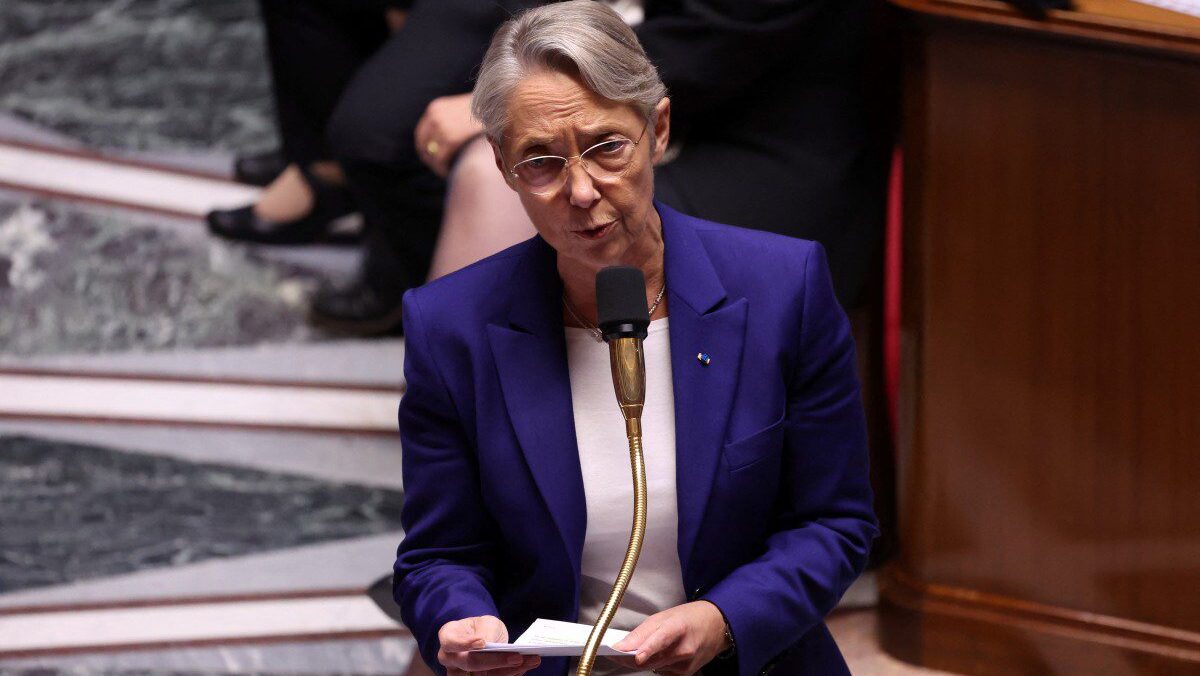
French Prime Minister Elisabeth Borne speaks during a session of questions at the National Assembly in Paris on October 31, 2023.
Photo: EMMANUEL DUNAND / AFP
Six months ago, France descended into chaos following the death of a young man killed by a police officer. Once the wave of rioting had subsided, the government promised exemplary measures to prevent a repeat of the violence. Prime Minister Élisabeth Borne’s government has just unveiled a series of measures designed to combat endemic violence among minors.
The aim is to combat what has been perceived as “a crisis of authority”—the authority of the State, but also the authority of parents.
The prime minister announced that municipal police forces would be able to carry out procedures normally reserved for the judicial police, such as consulting police files. Fulfilling a campaign promise made by Emmanuel Macron during the 2022 presidential election, Élisabeth Borne also announced the launch, on an experimental basis, of ‘republican action forces,’ a kind of emergency brigade dispatched to areas in crisis to establish a diagnosis and find solutions within a few weeks in the areas of justice, education, or health. The idea is to offer tailor-made solutions based on the different needs of the areas concerned. However, this is a one-off scheme that will only partially meet the needs of local councillors, who say they are sorely lacking in resources.
With regard to the judicial aspect, Borne insisted on an “exemplary penal response” and “the total refusal of impunity,” which means broadening the range of sanctions. Particular emphasis is being placed on minors, who were over-represented among the rioters in June—30% of those in police custody. A bill is to be put before Parliament to allow young offenders to be compulsorily placed in youth protection units with military supervision. This is a project that has been proposed many times by French politicians since Nicolas Sarkozy but has never come to fruition.
In an attempt to stem the crisis of authority among parents, the government intends to step up the pressure on those legally responsible for delinquents, by involving both parents, particularly fathers, who are considered to be largely absent. As the law stands at present, it is the parent who has custody of the children who is financially liable for any damage caused by their children, which is usually the mother. Both parents will have to pay for any damage caused by their minor children. The government also intends to make community service possible for parents and to offer ‘parenting courses.’
The educational aspect of the measures includes increasing the number of social mediators in underprivileged neighbourhoods and extending the hours of moral and civic education at school.
A social media ban, which has been mooted for several months now as part of the fight against bullying at school, should have been introduced to allow young people involved in the riots to be excluded from social networks, but Brussels has voiced its disapproval because of the risk of excessive surveillance of online content.
Another aspect of the measures announced by the government concerns the reconstruction of public facilities destroyed during the riots. In the days following the unrest, insurance companies announced huge sums. Agence France Assurance put the final figure at €200 million for the cost of reconstruction. The government has pledged to contribute €100 million.
All these measures are still at the draft stage and will have to be the subject of laws to be put to a vote in Parliament. However, the underlying and ultimate causes of the outbreak of violence at the end of June—laxity in the judiciary and uncontrolled immigration—remain taboo for the government.
